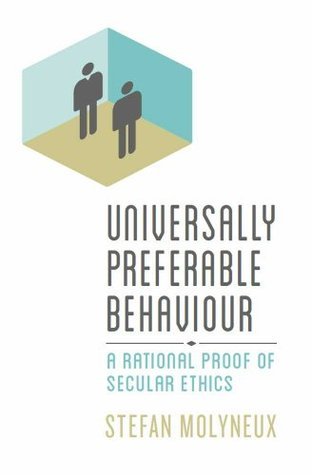What do you think?
Rate this book


177 pages, Kindle Edition
First published January 1, 2007
[...]
6. “Preferences” are required for life, thought, language and debating.
7. Debating requires that both parties hold “truth” to be both objective and universally preferable.
8. Thus the very act of debating contains an acceptance of universally preferable behaviour (UPB).
[...]